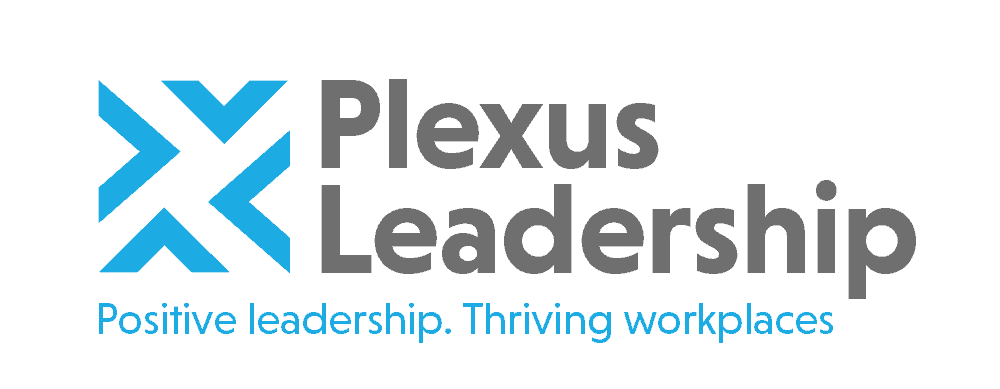We are currently experiencing a crisis of trust in leadership. This is patently obvious in the political arena; however, it is just as apparent in the business world. Covid has highlighted this crisis even further as it has shone light on the worst leadership practices as well as the best. When leaders navigate a complex and significant crisis like Covid, they often need to take tough and decisive action to ensure their business adapts quickly to the new market realities. The decisions leaders take and how they choose to implement them impact the trust relationship with their workforce, not just in the short term, but for months and even years to come.
There are numerous reasons for declining trust in leaders in recent decades including corporate cronyism, offshore tax havens and tax dodging, prioritising short-term profitability over sustainable growth and environmental responsibility and a growing income disparity between top executive pay and other pay grades.
Shifting demographics and generational differences are also impacting on workplace trust. Millennials and other younger employees aren’t willing to blindly follow and trust leaders anymore. In fact, studies suggest they are developing an ever-growing mistrust of authority figures and trust their peers more than the leaders in their company. This is, at least in part, because of the breakdown of the traditional ‘psychological contract’, or set of beliefs, perceptions, and informal obligations governing the relationship between an employer and an employee. Most employers can no longer offer secure work and career progression, so this ‘contract’ is breaking down. This is likely to be exacerbated in the coming years as the pace and extent of automation and digitization of the workplace accelerates, leaving many people unemployed or having to fight for temporary work as part of the fast-growing ‘gig economy’. Many millennials have already seen their parents made redundant which has made them wary of giving their unfettered loyalty and trust to organizations and their leaders.
Below are 5 steps leaders can take to strengthen trust with their people:
Pursue a higher purpose beyond profit
Recent history is full of examples where leaders have placed greed and short-term shareholder returns over creating sustainable value for customers, employees and society. Many companies are still turning a blind eye to the impact of their short-term and exploitative practices, including paying employees (and others in the supply chain) below the minimum wage, using questionable employment practices, and awarding top executives disproportionately high pay increases and bonuses. Awareness of these practices among employees, customers and the public is growing because of increased transparency and growing global connectedness resulting from rapid advances in online media and social networks that bypass traditional borders and boundaries.
To build greater trust, business leaders should invite their people to shape a greater purpose for their organization that contributes to a brighter and more sustainable future for all. This involves establishing a compelling purpose, ideally one that benefits all stakeholders, including customers, employees, suppliers, and society. By taking a multi-stakeholder perspective rather than a narrow shareholder one, positive leaders leverage additional perspectives, ideas and commitment for positive change and innovation that benefits everyone, not just the owners and C-suite. There are a growing number of organizations that are seeing the financial and non-financial benefits of building strong purpose-based companies. Most integrate sustainability goals into their purpose, not as a token act of “greenwashing”, but to ensure they prepare their business for the era of green energy and sustainability we are entering. Studies clearly show the value of creating businesses that are a force for good in the world. Great examples include Unilever, Novo Nordisk Pharmaceuticals and VF Corporation (owner of North Face, Timberland, and other apparel brands). You can watch a video of Steve Rendle, CEO of VF Corporation, for inspiration on how to do this.
Ensure transparent and human-centred people practices
Social media has immense power to expose people and companies which are engaging in exploitative, potentially unlawful, or irresponsible behaviour. For example, Sir Philip Green of the now failed Arcadia retail empire came under intense criticism last year for exploiting the UK government’s furlough scheme to reduce redundancy payments during Covid. But he is certainly not alone in putting profit over people. Before the digital age, this story would have taken a long time to come to the public’s attention and might never have been exposed. Social media has immense power to rapidly expose injustices, exploitation, and wrongdoings, undermining not only the trust of employees, but also customers and the general public. By ensuring all their actions and decisions are ethical, fit for public scrutiny and transparent, leaders can build a culture of openness, integrity and trust.
When taking a decision that is potentially risky or damaging to one or more groups of stakeholders, leader can ask questions such as: “Would I be happy for my friends and family to see this decision (and the consequences) reported on a major social media platform like Twitter?” As well as measuring themselves against this type of standard, the best leaders ensure their employees are held accountable to similar standards, reducing the risks of unethical behaviour or a poor decision that can undermine trust, reputation, and customer loyalty.
Bridge the gap between words and actions
It is imperative that leaders’ words are matched by reliable follow-through so people can trust they will do what you say. If leaders don’t follow through on their commitments, people will quickly lose trust and respect in them. Even little discrepancies between promises and actions can undermine trust as it is a fragile bond, especially when a leader is new in role and they are still building up connections and trust with their people.
Tackle misinformation and fake news
One of the downsides of pervasive social media is that it amplifies fake news and misinformation. We have seen this with a significant escalation in conspiracy theories, including those regarding the new 5G masts causing illness and numerous false claims regarding the Covid vaccines from anti-vaxxers. It is important for leaders to understand and tackle untruths and misinformation decisively by highlighting inaccuracies, especially if they pose a risk to staff or the business. They should ensure people have good access to reliable, fact-checked sources of information they can count on.
Be honest about bad news
Attempting to shield employees from bad news undermines trust and disempowers employees from being able to provide input to help tackle the problem. It is therefore imperative that leaders speak as much as possible from their heart, adopting an ‘open and honest’ policy when it comes to dealing with negative news such as layoffs, failure to secure additional funding, poor sales performance, etc. In this new digital age, the truth will quickly be outed if leaders try to hide tough messages from staff, as the rumour mill is now super-charged by online communities and social media. It is clearly always important to judge the timing of the communication in a considered and compassionate manner. However, it is vital to be open and honest when sharing any bad news.
Trust is at the heart of positive leadership. However, in a dynamic digital world of information overload, misinformation, fake news and growing employee and stakeholder scrutiny, leaders are struggling to build trust and respect among employees and stakeholders. By being open, transparent, supportive and listening carefully to the needs of different stakeholders, rather than pursuing their own self-interest, leaders can build stronger bonds of trust with people to unlock their engagement, effort, and excellence.
Other Posts

About the Author
James Brook
Founder and MD | Leadership Consultant | Organizational Psychologist
James is a leadership consultant, organizational psychologist and executive coach. He has over 25 years’ experience working with leaders, teams and organizations globally to optimize their performance, talent and future success. He specializes in positive leadership, thriving workplaces, collaboration and influencing, organizational change and transformation, accelerating innovation and coaching executives and leaders in innovative sectors including Tech, Digital, E-commerce and Life Sciences.
Before setting up Plexus Leadership, James held leadership roles in HR and Talent Management in the UK and abroad with companies such as NatWest, Yahoo! and Novo Nordisk Pharmaceuticals. After this, he founded and led several talent and leadership consulting and assessment businesses, including Strengthscope®, an online strengths assessment and development business serving a wide range of UK and global clients. James grew this venture into a global market leader before selling the business in 2018.
James has supported, advised and coached leaders and teams globally across diverse industries and geographies. Clients he has worked with include Allen & Overy, Commvault, Equinor, Facebook, GSK, Hilton, John Lewis, Novartis Pharmaceuticals, NHS, Oracle, Sainsbury’s, Swiss Re, Tesco, Takeda Pharmaceuticals, WSP and Yahoo!.
James has a Master’s in Organizational Psychology, an MBA, an Advanced Diploma in Executive Coaching and a Harvard Business qualification in Sustainable Business Strategy. He is a member of the Institute of Directors, the Association of Business Psychologists and a Fellow of the Chartered Institute of Personnel and Development (FCIPD). He is currently undertaking a PhD in Organizational Psychology examining the start-up experiences of Tech and Digital entrepreneurs.
James is a regular contributor and speaker on leadership, coaching, innovative talent management and the future of work. His most recent book, Optimize Your Strengths, explores how leaders can create thriving workplaces by inspiring and supporting people to optimize their potential and teamwork to deliver breakthrough results.





